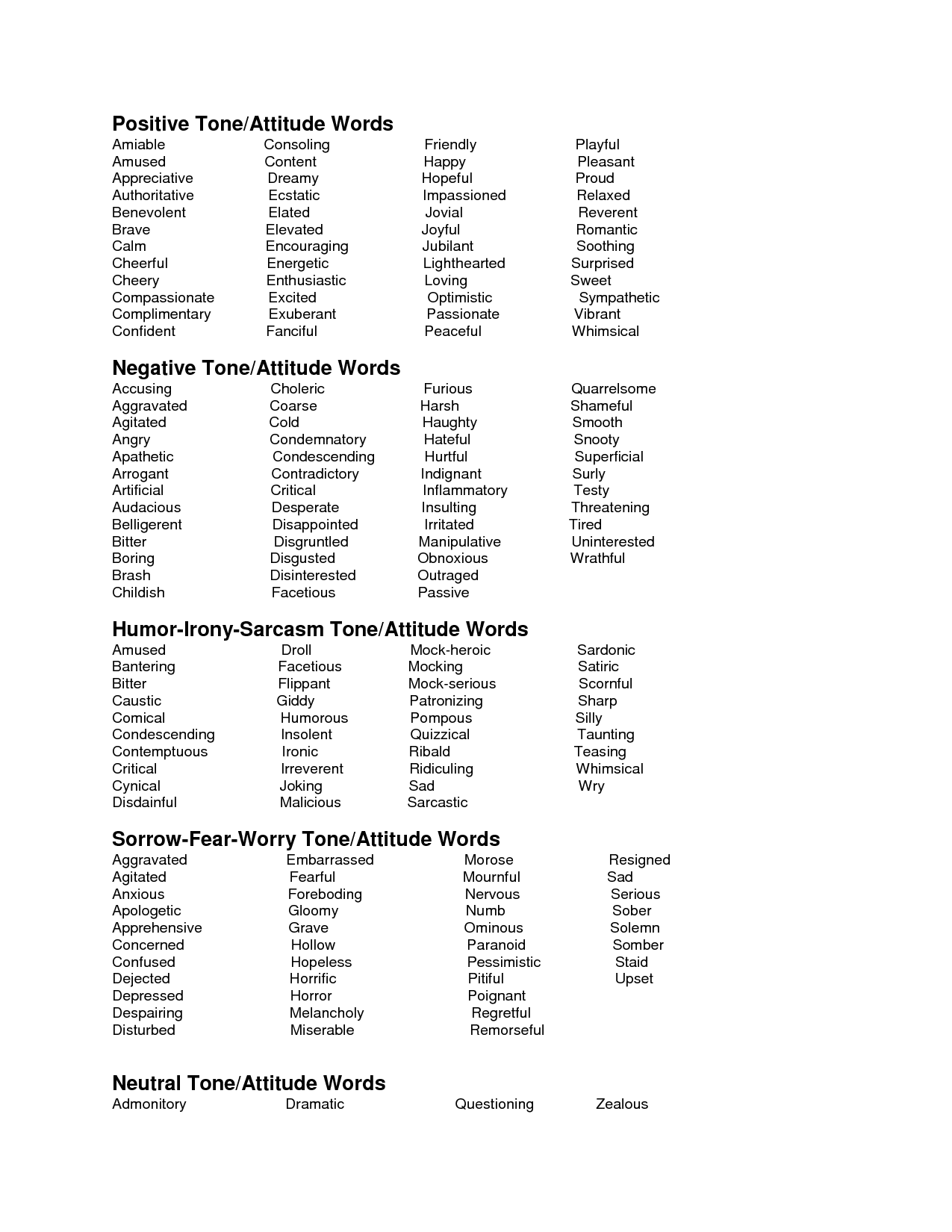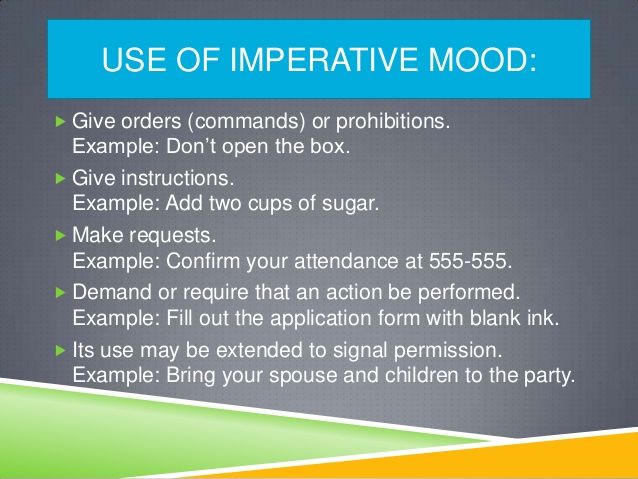

- #Examples of negative moods how to#
- #Examples of negative moods movie#
- #Examples of negative moods pro#
Moods are intense feelings that affect an individual over long periods without stimulation.ĭifferent factors can cause your change in mood.
#Examples of negative moods pro#
So you might not be a pro at it right away.
#Examples of negative moods how to#
Recognizing your emotions and learning how to get past those that aren't helping you is a skill. But this time, the word and image describe a pleasant feeling or a calm state of being. Next, imagine a word and an image slowly reappearing on the screen. Then imagine the words and image slowly fading off of the screen until they disappear. Look up at the screen and see the emotion you want to release written in big letters, with an image below it of what that emotion feels like to you.
#Examples of negative moods movie#
Close your eyes, and imagine you're sitting in a movie theatre. Then, as you exhale the air out, imagine it carrying out all of the tension or negative feelings inside of you. Imagine the air coming into your body as new, clean, and cool. The "cleansing breath." Take a deep breath in through your nose.For example, inhale through your nose for a count of 3, hold the breath for a count of 2, and then exhale through your mouth for a count of 4. Give them a try, and see which seem like the right fit for you. Some may work better or feel more comfortable to you than others. Here are some techniques that can help with calming intense emotions and releasing negative ones. It means that after you acknowledge and accept an emotion, you don't need to keep carrying it. Letting go of an emotion isn't the same as ignoring it or trying to escape from it. Practice releasing the emotion (and releasing yourself from its grasp).Feelings come and go, and this one will pass too." Will you feel the same way a week from now? A month from now? A year from now? Or you can help coach yourself through a feeling by saying things like, "This is hard, but feeding my anger isn't going to change the situation." Or "I've felt this way before. Think about whether you'll feel the same way in the future as you do right now.

What happens in your body? Do your shoulders tense? Or do you get a hot feeling behind your eyes? Try writing down what you notice about the feeling. Paying attention to how you feel can help you accept the emotion and then give yourself permission to let it go. See if you can take a step back from the feeling to see it more clearly.

Look closely at the feeling, but don't act on it. Feel the feeling for a bit, without judgment.If you can find the "message" behind the emotion, you can understand it better. When you feel a strong emotion, try to think about what the emotion is telling you. And anger can alert you to something that needs to change. But fear can also help keep you safe from danger. For example, fear is often seen as a negative emotion. Negative emotions may be hard or uncomfortable, but they're still important. Remember that emotions aren't "bad" or "good".Being able to identify emotions accurately is a big part of learning how to handle them. Is it anger? Jealousy? Resentment? Sometimes when emotions are high, it can be easy to feel like you're angry when, if you look closely, you're actually more frustrated or disappointed than anything. But there are ways to let go of negative emotions and move forward. Over time, it can affect your long-term health too. Holding on to negative emotions for longer than you need to can really affect your daily life. But recovering from trauma may involve trying different strategies and getting help from a mental health professional. If that's you, you still might find some tips here that you can use. The advice isn't meant for people coping with the effects of abuse, violence, or other trauma. The advice given here is for people dealing with everyday life stresses. This info is about letting go of negative emotions, like anger, sadness, resentment, and frustration.


 0 kommentar(er)
0 kommentar(er)
